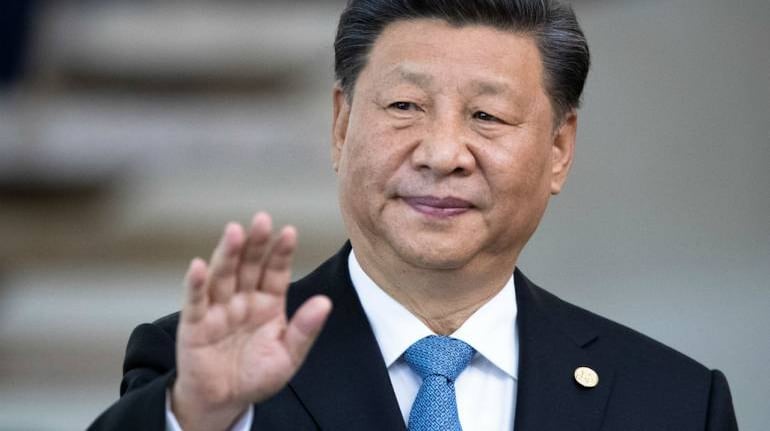



China’s Communist leader Xi Jinping’s predicament following mass protests in China against COVID-19 restrictions is a case of history repeating itself. From total endorsement of his authority by the State and the ruling party establishments only six weeks ago, Xi suddenly looks vulnerable, and faces challenges to his absolute power.
History is replete with such examples caused by hubris. Near home, the best example is the fate of Zulfiqar Ali Bhutto, who won Pakistan’s March 1977 election by a landslide. Within four months, he lost power to the army in the wake of widespread opposition violence and was executed two years later. Halfway across the globe, in January 1973, Richard Nixon began his second term as President of the United States of America with one of the biggest electoral mandates in US history. Within a year and a half, Nixon was forced to resign, becoming the only US President to leave office voluntarily.
China’s ongoing unrest against restrictions conceived to completely wipe out the pandemic is a play with many acts. As a similar-sized neighbour and China’s biggest regional challenger in the long run, it is important that Indians do not misread what is happening across their northern borders.
Opposition to lockdowns, mask mandates, mass testing, and other precautionary measures to contain COVID-19 is not unique to China. Actually, they were late in surfacing on the mainland compared to the US and Europe. The sweeping re-election victory by Florida’s Governor — and the likely Republican presidential nominee in 2024 — Ron DeSantis last month, is owed largely to the Governor’s lead in breaking with the White House when the pandemic was raging in the US, and unilaterally dismantling COVID-19 restrictions in his state.
DeSantis opened Florida’s schools, restaurants, and the state’s famous beaches in defiance of the US Centers for Disease Control and Prevention, going well beyond the science-sceptic then President, Donald Trump. There are other similar, but lesser-known instances from California, France, et al. All over India, people stopped wearing face masks even when orders making such protection compulsory were in force.
The triumphalism among India’s commentariat this week over open dissent in China is, therefore, misplaced, and can damage critical assessments of where Xi’s leadership of his country is headed. There is a populist view in major democracies — including India — that China is a unitary state, where order reigns and every aspect of life is tightly controlled. Such a view is contrary to the reality that China is a society in constant turmoil.
It is not far from the truth to say that China has experienced a ‘permanent revolution’ since Mao Zedong’s victory over the Kuomintang and the establishment of a People’s Republic 73 years ago. Thrice this turmoil has grabbed global headlines, and each time, sweeping changes ranging from China’s disintegration to a pro-democracy insurrection were predicted: during the Great Proletarian Cultural Revolution, which lasted a decade from 1966; during the Tiananmen unrest in 1989; and now with protests across Chinese cities catching the leadership unawares.
The world has, however, forgotten that in the first four years of the People’s Republic, when Mao implemented extensive land reforms, agitations in rural China cost the lives of anything between two million to five million landlords. There is no precise official figure of the killings, which Mao condoned with his famous phrase that “revolution is not a dinner party”.
Five years later came the Great Leap Forward, designed to transform China from an impoverished agrarian economy to a high-yielding, collectivised farming nation complemented by an industrialised countryside. The effort was a disaster with few parallels in the world: a famine that ensued claimed the lives of between a low estimate of 15 million to a high of 55 million Chinese. Then came the Cultural Revolution of which Xi himself was a victim, exiled to a village as a teenager after his father, a Communist Party apparatchik, was persecuted and jailed. Through all this, disproving prophets of doom in the West, China emerged as a nuclear weapons State and became a permanent member of the United Nations Security Council.
To understand the ongoing protests in China, it is necessary to remember that change has been the only constant in that country in the last seven decades. Between the headline-grabbing Cultural Revolution and the Tiananmen mass demonstrations, the entire nation has been in continuous ferment over mass anti-spitting drives or a “four-pests-campaign” to rid China of rats, flies, mosquitoes, and sparrows. Consequently, China’s society is perpetually in turmoil, its people full of fervour or orderly dissent.
When market reforms made people rich, raising standards of living, and making money was no longer a capitalist evil, the ardour and zeal of this highly-organised society took different forms and found new outlets. In tandem with the rise of State-regulated capitalism, people have constantly made collective bargains, protested at workplaces or on the streets and caused localised disruptions all over China for many years. Reasons for these have varied from poor working conditions, financial mismanagement, land appropriation and state corruption. Because these outcries have been isolated and posed no threats to the central government and the party headquarters in Beijing, such opposition or dissent did not get much attention outside China.
Responses by city governments in the last 48 hours suggest that they are taking note of popular disaffection over COVID-19 restrictions. If easing of pandemic controls in Guangzhou, Chongqing, and Zhengzhou become the nationwide norm, Xi may ride out the storm and prevent Tiananmen being repeated on his watch. Xi may take one step backward to prepare for two steps forward later when the time is opportune.
Discover the latest Business News, Sensex, and Nifty updates. Obtain Personal Finance insights, tax queries, and expert opinions on Moneycontrol or download the Moneycontrol App to stay updated!
Find the best of Al News in one place, specially curated for you every weekend.
Stay on top of the latest tech trends and biggest startup news.